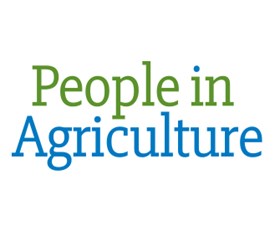Grains Research Bursary Awarded to John Kirkegaard
23/4/2018
The profitability of farmers both now and in the future is heavily dependent on the farming systems being used. Dr Kirkegaard has dedicated a large part of his career to providing more insight into scientific research. This research is fundamental to ensuring the future profitability of farming.
The profitability of farmers both now and in the future is heavily dependent on the farming systems being used. Dr Kirkegaard has dedicated a large part of his career to providing more insight into scientific research. This research is fundamental to ensuring the future profitability of farming.The GRDC - Grains Research Development Corporation supports this, and as such, they awarded Dr John Kirkegaard the chief research scientist at CSIRO with an award that recognises his excellence. The award was presented at the GRDC update, held in Dubbo, New South Wales.
The award was presented by John Minogue who is the northern panel chair for the Grains Research Development Corporation. Minogue praised Dr Kirkegaard for his uncanny ability to develop useful yet practical packages to be used for the management of crops. He noted how well Dr Kirkegaard was able to take learnings from his high-level research and use it to give farmers practical recommendations and advice that enabled them to manage their farming systems more profitably and sustainably.
The award for Dr Kirkegaard includes a travel bursary which will, in turn, allow for the expansion of his professional network. His professional network will expand as the travel bursary will allow him opportunities to collaborate with some research scientists that are critical stakeholders in the Australian grains industry which he wouldn’t be able to do without the award. This award was given in the hope to provide Kirkegaard with the tools necessary to grow his work and to be more beneficial to the industry on the whole.
Minogue was quoted at the event saying “Like many of our pre-eminent scientists, Dr Kirkegaard has embraced opportunities to foster industry networks and collaborative research opportunities over the years both within Australia and internationally,”. With the GRDC award, these types of alliances will be strengthened, and this will serve to be of great benefit to the grains industry.
Dr Kirkegaard joined the CSIRO in 1990 as a research scientist after graduating from the University of Queensland. His research interests over the years have encompassed agronomy, root-soil interactions as well as dry-land mixed farming.
This award is not the first award that Dr Kirkegaard has received. He has also won the Eureka Prize for Sustainable Agriculture. For his contributions to industry research, he was awarded the GRDC Seed of Light as well.
We know that he will do great things after completing the work that this award allows him to get done and agree that there could not have been a better choice for the award. We applaud his work, his receiving this award and look forward to the future research that will be translated into easy and practical ways to help the farming industry grow and flourish into the future by Dr Kirkegaard.





